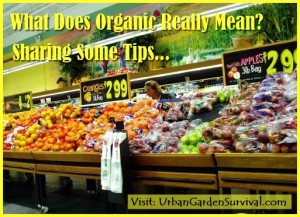
In today’s fast-paced world, where processed foods and chemical-laden products dominate the market, the growing trend toward organic living feels like a breath of fresh air. As someone who has spent over three years deeply rooted in agriculture—along with a hands-on internship that sharpened my insights—I’ve witnessed firsthand the profound impact that organic farming and organic stores have on our health, our environment, and our communities.
Having taught more than a thousand students the principles of sustainable agriculture, I can confidently say: organic is not just a buzzword—it’s a way of life.
What Exactly is an Organic Store?
At its core, an organic store is a haven for those who seek food and products free from synthetic pesticides, genetically modified organisms (GMOs), and harmful additives. These stores curate a variety of items—fresh fruits and vegetables, grains, dairy, beauty products, and even cleaning supplies—that are certified organic.
Unlike conventional supermarkets, organic stores often build strong relationships with local farmers, ensuring that what reaches your basket is ethically sourced, minimally processed, and environmentally responsible.
Why the Organic Movement Matters
My journey through agriculture has taught me that the soil is a living entity. It breathes, it ages, and it can suffer at the hands of reckless farming. Organic farming practices restore soil health, promote biodiversity, and reduce pollution. When you choose to shop from an organic store, you’re not just making a healthier choice for yourself; you’re casting a vote for a cleaner, greener planet.
Here’s why organic matters:
Healthier Foods: Organic products are richer in nutrients, free from harmful chemicals, and often taste better because they’re grown in nutrient-dense soils.
Environmental Sustainability: Organic farming reduces carbon footprint, conserves water, and protects wildlife.
Support for Local Economies: Buying organic often means supporting small, local farms that practice ethical farming.
These values aren’t just theoretical for me—they’re the same principles I have instilled in every student I’ve mentored. Watching future farmers and agriculturalists adopt organic methods has been one of the most fulfilling aspects of my career.
What to Expect When You Walk Into an Organic Store
If you’ve never visited an organic store before, let me set the scene for you.
You’ll likely be greeted by the vibrant colors of seasonal produce stacked in rustic baskets. There’s an earthy aroma in the air—sometimes it’s fresh basil, sometimes it’s the comforting scent of freshly milled oats. Shelves are lined with products boasting certifications like USDA Organic, India Organic, or other local certifying bodies.
Many stores also offer:
Bulk bins for grains, nuts, and seeds (less plastic waste, yay!)
Fresh dairy and eggs from pasture-raised animals
Handmade soaps, lotions, and essential oils
Eco-friendly home cleaning supplies
Educational workshops on sustainable living
I often recommend my students to explore organic stores not just for shopping, but also for inspiration. Seeing what’s available locally can spark ideas for crops to grow, markets to enter, or even new business ventures!
How My Agricultural Journey Connects to the Organic Movement
Over the years, my experience has shown me that organic farming isn’t just about omitting chemicals—it’s about building an entire ecosystem of trust.
When I worked hands-on during my internship, I learned the delicate art of crop rotation, natural pest management, and composting. Later, as an agriculture educator, I made it a point to teach my students about soil health, sustainable farming practices, and how organic choices impact human and environmental health.
Through this journey, I’ve seen that people trust organic stores because they represent transparency. You know where your food comes from. You can often meet the farmers. You can trace your vegetables from seed to shelf.
That level of trustworthiness—that promise of purity—is the foundation of the organic movement, and it’s why I’m passionate about supporting organic stores whenever possible.
Tips for Shopping Smart at an Organic Store
If you’re new to organic shopping, here are a few friendly tips (gleaned from my years in agriculture and guiding others):
Prioritize: Start by switching to organic for the “Dirty Dozen”—the fruits and veggies most contaminated by pesticides.
Seasonal = Better: Buy what’s in season for better taste, better price, and better nutrition.
Local Love: Choose local produce when possible—it’s fresher and supports your community.
Ask Questions: Organic store staff are usually passionate and knowledgeable. Don’t be shy!
Bring Your Own Bags: Many organic stores are champions of sustainability—help them out by reducing plastic use.
A Future Fueled by Organic Choices
As an agriculturist and educator, it fills me with hope to see more people walking through the doors of organic stores. Each purchase is a step toward healthier bodies, a cleaner planet, and stronger local economies.
Organic living isn’t about perfection; it’s about making better choices whenever we can. And those small choices add up—just like planting seeds can eventually create a forest.
If you’re ever unsure where to start, remember: it’s not about switching your entire lifestyle overnight. It’s about making one better choice today—and another tomorrow.
After all, change is like farming: it happens one season, one crop, one person at a time.
About the Author
Payal is an agricultural expert with over three years of experience, plus a year of dedicated internship training. She has taught more than 1000 students the art and science of agriculture, specializing in sustainable practices and organic farming. With a soft yet empowering voice, Payal advocates for mindful living, soil health, and the incredible power of organic choices.
